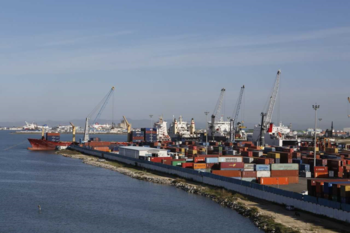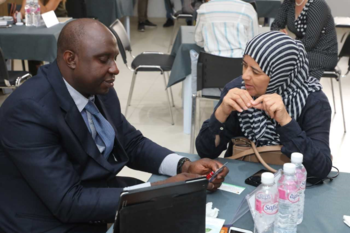Approach
The project team primarily works with small and medium-sized enterprises in the manufacturing and service sector that have little or no representation in African markets.
With support from the project and the consulting firm Deloitte, companies in the food, construction and health industries have established export consortia to jointly tap into new markets in Africa. An IT consortium is set join shortly. The consortia are jointly developing strategies for exporting to the five African target markets: Cameroon, Côte d’Ivoire, the Democratic Republic of Congo, Kenya and Nigeria.
The project also explicitly targets German enterprises that are looking to enter the sub-Saharan market but need partners on the continent to do so. It organises business trips and visits to trade fairs in Germany, Tunisia and the African target markets in order to help establish contacts and form partnerships.
The export platform Think Africa was founded together with the public export agency CEPEX, chambers of commerce, business associations and specialised consulting firms. It points businesses to market opportunities, especially in the five African target markets. The platform aims to coordinate the information, advisory and support services of its members.
The project trains advisors and supports the institutionalisation of an advisory network to provide even small enterprises with professional and specialised private advisory services that facilitate access to African markets.
In order to improve the framework for trade between Tunisia and the African target markets, the project team also supports representatives of the Ministry of Trade and other relevant government agencies to improve their capacity to negotiate, implement and monitor regional trade agreements. The goal is to strengthen Tunisia's regional integration, dismantle trade barriers and thus improve the export opportunities of Tunisian companies.
Results
The work of the export platform Think Africa is gathering pace. Members have undertaken joint business trips, including a market exploration trip to Kenya and a subsequent roadshow in Tunisia. Tunisian companies attended nine information and matchmaking events where they learned about market opportunities in Cameroon, Côte d’Ivoire and the Democratic Republic of Congo. The platform has invited potential buyers from the three countries and organised B2B meetings with 18 African buyers. So far, 850 representatives from 500 Tunisian companies have attended these events.


